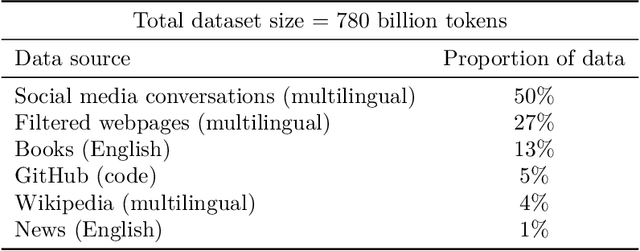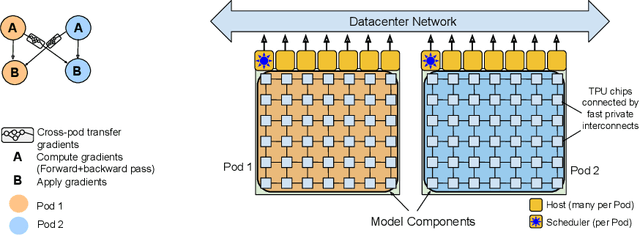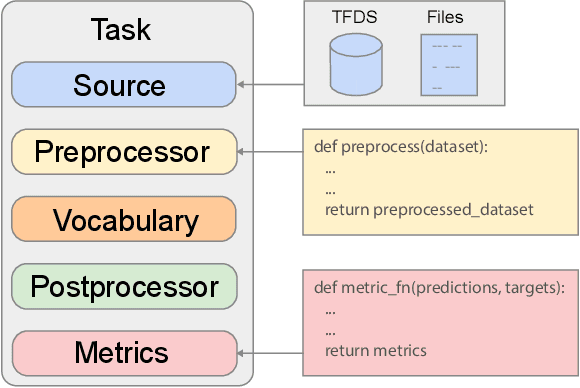Sasha Tsvyashchenko
PaLM: Scaling Language Modeling with Pathways
Apr 19, 2022



Abstract:Large language models have been shown to achieve remarkable performance across a variety of natural language tasks using few-shot learning, which drastically reduces the number of task-specific training examples needed to adapt the model to a particular application. To further our understanding of the impact of scale on few-shot learning, we trained a 540-billion parameter, densely activated, Transformer language model, which we call Pathways Language Model PaLM. We trained PaLM on 6144 TPU v4 chips using Pathways, a new ML system which enables highly efficient training across multiple TPU Pods. We demonstrate continued benefits of scaling by achieving state-of-the-art few-shot learning results on hundreds of language understanding and generation benchmarks. On a number of these tasks, PaLM 540B achieves breakthrough performance, outperforming the finetuned state-of-the-art on a suite of multi-step reasoning tasks, and outperforming average human performance on the recently released BIG-bench benchmark. A significant number of BIG-bench tasks showed discontinuous improvements from model scale, meaning that performance steeply increased as we scaled to our largest model. PaLM also has strong capabilities in multilingual tasks and source code generation, which we demonstrate on a wide array of benchmarks. We additionally provide a comprehensive analysis on bias and toxicity, and study the extent of training data memorization with respect to model scale. Finally, we discuss the ethical considerations related to large language models and discuss potential mitigation strategies.
Scaling Up Models and Data with $\texttt{t5x}$ and $\texttt{seqio}$
Mar 31, 2022

Abstract:Recent neural network-based language models have benefited greatly from scaling up the size of training datasets and the number of parameters in the models themselves. Scaling can be complicated due to various factors including the need to distribute computation on supercomputer clusters (e.g., TPUs), prevent bottlenecks when infeeding data, and ensure reproducible results. In this work, we present two software libraries that ease these issues: $\texttt{t5x}$ simplifies the process of building and training large language models at scale while maintaining ease of use, and $\texttt{seqio}$ provides a task-based API for simple creation of fast and reproducible training data and evaluation pipelines. These open-source libraries have been used to train models with hundreds of billions of parameters on datasets with multiple terabytes of training data. Along with the libraries, we release configurations and instructions for T5-like encoder-decoder models as well as GPT-like decoder-only architectures. $\texttt{t5x}$ and $\texttt{seqio}$ are open source and available at https://github.com/google-research/t5x and https://github.com/google/seqio, respectively.
 Add to Chrome
Add to Chrome Add to Firefox
Add to Firefox Add to Edge
Add to Edge